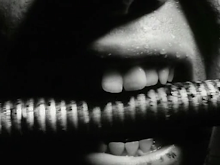Review by AJ Detisch
Directed by David Mackenzie
Written by David Mackenzie and Ed Whitmore, based on a novel by Peter Jinks
Cinematography by Giles Nuttgens

David Mackenzie’s follow-up to the brilliant Young Adam wants to be a feel-good underdog story of a lonely voyeur who is trying to confront some psycho-sexual issues with his dead mother. It wants to be gritty, realistic, and mysterious. At the same time, it wants to be funny and nonjudgmental of its disturbed lead as he establishes himself as an adult.
To meet this end, the film tries hard to be youthful. Its poster has hand-drawn letters looking like that of Juno. Its original soundtrack is comprised of fast-paced indie rock which tries to convince the audience that Hallam is OK; just a little misguided. But strangely the film is anything but youthful.
Like Young Adam this film’s central mystery concerns a drowned woman- in this case Hallam’s mother. Young Adam keeps its mystery quiet, contemplative, and paced well enough to hit you with the truths as they come. Hallam Foe does the opposite. It foregrounds its character’s psychosis so clearly and so early that he never really does anything outside his expected parameters. The opening scene is Hallam in his treehouse watching his sister fooling around with her boyfriend. Hallam swiftly interrupts, asserting his presence in the household. Here we see everything that Hallam will do for the rest of the movie.
The mystery surrounding his mother’s drowning is whether it was suicide or murder by his father’s girlfriend. The audience can never really trust Hallam because, besides being creepy, we think his obsession has led him close to insanity. This hindered the mystery element for me because Hallam is too sporadic to be relatable. Right when he's found some clues that would support his claim he runs away from home, at first it appearing to be looking for the police. Then he gets extremely sidetracked by a girl who resembles his mother, which frustratingly leads the story away from the mystery element.
While Jamie Bell does bring out some very endearing traits in his lost character, he was limited by the obviousness of his psychological needs. This movie is in no way mysterious, yet it is not blunt either. It tries to be realistic in dealing with such issues, but it adds a very self-conscious spunk which registers itself as quite the opposite. It goes for a soundtrack-heavy, Trainspotting attitude to help the audience root for a protagonist who scales buildings, picks locks, and camps out for the sake of voyeurism. These urban peeping tom adventures Hallam engages in are way too difficult for an inward-drawn country boy to engage in and they are not sexy, giddy, or pleasant. They are more neutral than anything; not propelling the character or story. Mackenzie makes you understand Hallam, yet he fails to build common ground.
He expects you to enjoy Hallam’s trials and tribulations without much ideological justification. The film hinges on its audience’s perspective on voyeurism/the kind of person who engages in it. Obviously, most people would be disgusted by it. And Hallam Foe realizes that, but it does not let us see Hallam weigh the morality of his decisions. He goes from person to person, trying to fill his deep void. There is a particularly disturbing line from Hallam’s love interest Kate where she drunkenly says “I love creepy boys,” perhaps asking the audience to do the same. The line tries to foreshadow her understanding of him (her motivation remains vague throughout) and tries to further us from judging him. It’s not hard to like Hallam, but it is very hard to participate in his adventure- if it is even an adventure at all. All the while, the film tries to use its flamboyant soundtrack to mask its indecisive mood.
Great performances are weighed down by a film with a weak third act, muddy development, and needlessly ambiguous direction from Mackenzie. Recently this film was re-named for a US release, and for what reason? Not only is it more unappealing, but the hard truth is that the Hallam character never earns the title 'mister.'
